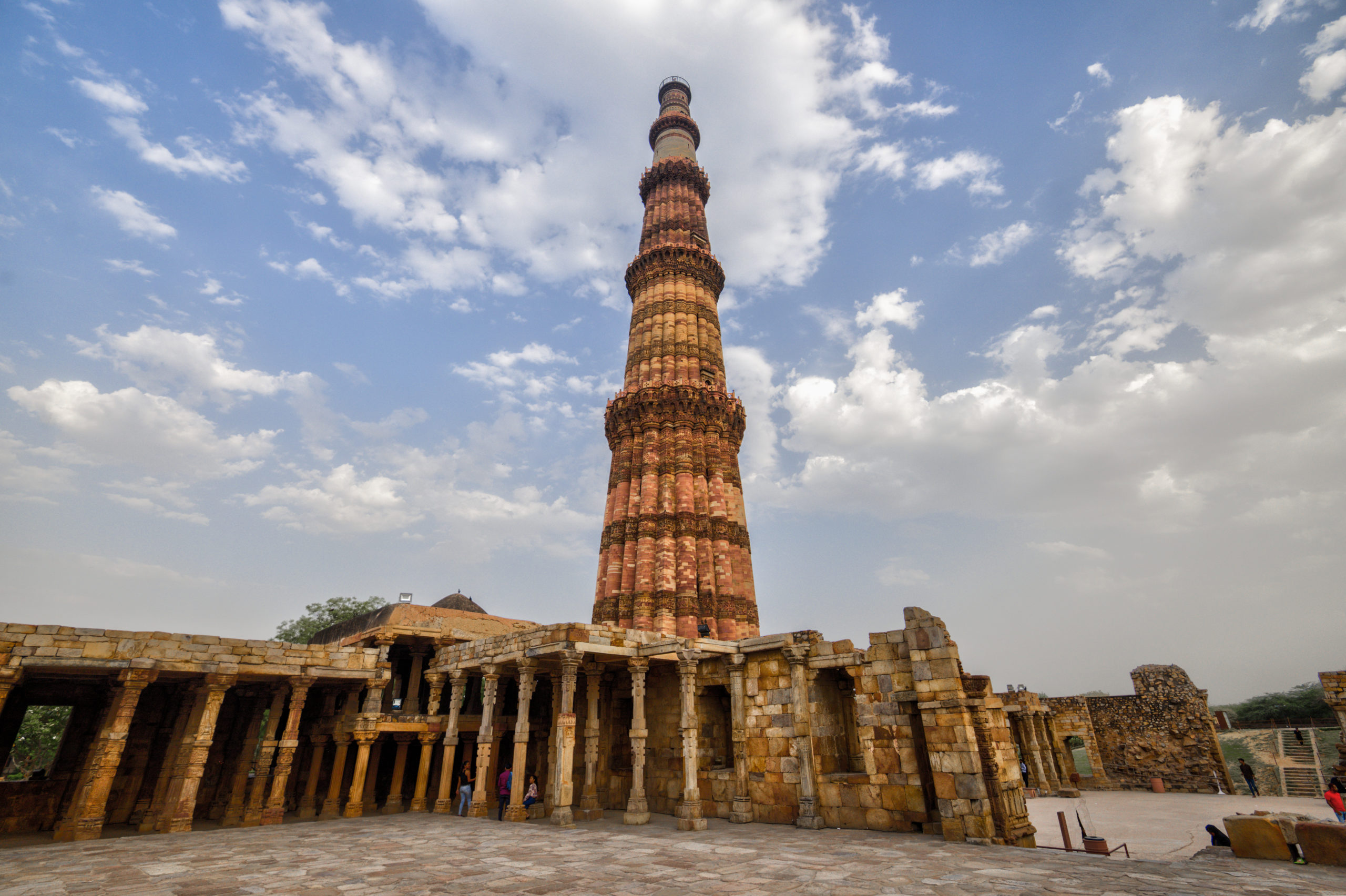
The Qutub Minar, also spelled as Qutb Minar, is a minaret that forms part of the Qutb complex, a UNESCO World Heritage Site in the Mehrauli area of Delhi, India.
Referring to the judgment in the Ayodhya land dispute case, a Delhi court has rejected a civil suit seeking restoration of Hindu and Jain deities and right to worship within the Qutub Minar complex, saying that past wrongs cannot be the basis for disturbing the peace in present and future.
The lawsuit, filed on behalf of Jain deity Tirthankar Lord Rishabh Dev and Hindu deity Lord Vishnu, claimed that 27 temples were partly demolished by Qutubdin Aibak, a general in the Army of Mohamad Gauri, and Quwwat-ul-Islam Mosque was raised inside the complex by reusing the material.
Rejecting the suit, Civil Judge Neha Sharma said, India had a culturally rich history. It has been ruled over by numerous dynasties. During arguments, the counsel for the plaintiff has vehemently argued on the point of national shame. However, nobody has denied that wrongs were committed in the past, but such wrongs cannot be the basis for disturbing the peace of our present and future.
The judge added, Our country had a rich history and has seen challenging times. Nevertheless, history has to be accepted as a whole. Can the good be retained and bad be deleted from our history?
She referred to the Ayodhya judgment delivered by the Supreme Court in 2019 and highlighted a portion of it in the order, which stated, Cognizant as we are of our history and of the need for the nation to confront it, Independence was a watershed moment to heal the wounds of the past. Historical wrongs cannot be remedied by the people taking the law into their own hands.
The suit sought a declaration that principal deity Tirthankar Lord Rishabh Dev and principal deity Lord Vishnu, along with Lord Ganesh, Lord Shiva, Goddess Gauri, God Sun, Lord Hanuman including presiding deities of 27 temples, have the right to be restored and worshipped with rites and rituals, the performance of regular pooja within the alleged temple complex situated in the area.
The lawsuit, filed by advocate Vishnu S Jain, further sought the issuance of mandatory injunction directing the central government to create a trust, according to Trust Act 1882, and to hand over the management and administration of the temple complex situated within the area of Qutub Complex.
The court, however, said that the plaintiff’s argument that worshippers have the right to exercise their religion conferred by Articles 25 and 26 of the Constitution of India and have the right to ensure that deities are restored at their original place with due dignity is devoid of merit .
The judge opined that once a structure has been declared to be a protected monument and is owned by the government, then the plaintiffs cannot insist that the place of worship must actually and actively be used for religious services.
The lawsuit had averred that Delhi was ruled by celebrated Hindu Kings up to 1192 when Mohammed Gauri invaded and defeated King Prithiviraj Chauhan in the battle in 1192 AD.
Thereafter, Qutubdin Aibak a commander of Mohammed Gauri destroyed Shree Vishnu Hari temple and 27 Jain and Hindu temples and raised inner constructions within the temple complex. The temple complex was renamed as ‘Quwwat Ul Islam Mosque’, in the Arabic language which means ‘Might of Islam’.
(Cover: Getty)
Delhi Police arrest three in Rs 17 lakh online stock market fraud; woman under investigation
Delhi lifts dry day restrictions for Holi; liquor shops to stay open across the city
With Iran engulfed in a rapidly intensifying war and civilian casualties mounting, families in Delhi…
Delhi govt to revamp 300 km of drains in 2026-27 under new master plan, aiming…
Sweeping crackdown targets habitual offenders, bootleggers and drug peddlers before Holi
Delhi ramps up security with 15,000 police on alert; focus on drunken driving, rash riding…